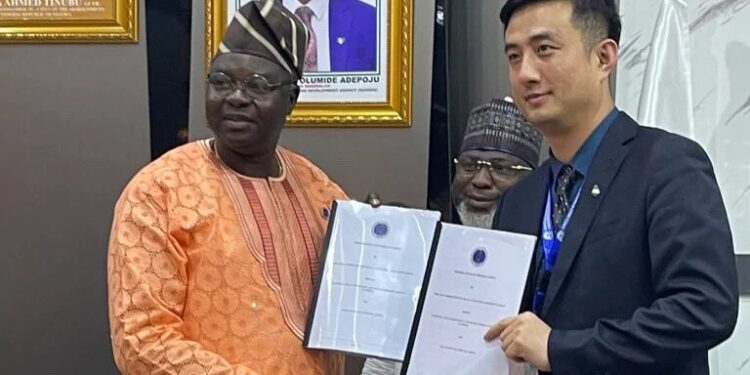
The National Space Research and Development Agency (NASRDA) has signed a Memorandum of Understanding (MoU) with Chinese satellite firm, Galaxy Space, to roll out Direct-to-Device (D2D) satellite communication connectivity across Nigeria.
Galaxy Space is a leading Chinese company known for developing and mass-producing low-cost Low Earth Orbit (LEO) satellites for commercial broadband internet.
The partnership is expected to significantly improve connectivity in Nigeria, particularly in rural and underserved regions. Advancing space communications
Speaking at the signing ceremony held Wednesday in Abuja, NASRDA Director-General Dr. Matthew Adepoju described the agreement as a major milestone in Nigeria’s efforts to advance its space and communications capabilities.
“With this collaboration, Nigeria is embracing the future of communication direct satellite connectivity without reliance on traditional terrestrial infrastructure like cell towers,” Adepoju said.
“This means your phone, laptop, or workstation can connect directly to satellites, enabling seamless communication even in areas without network coverage,” he added.
Beyond improved connectivity, the partnership will also offer capacity-building and technology transfer opportunities for Nigerian engineers, enabling the local development and potential domestication of satellite communication technologies.
“It is time Nigeria stopped depending entirely on imported tech devices. We must begin to develop and produce some of these technologies locally,” Adepoju added.
Galaxy Space representative, Mr. Sam Xiao, commended NASRDA’s leadership and noted that Nigeria could serve as a launchpad for the deployment of D2D technology across Africa. He also proposed a joint project to build a CubeSat—a miniaturised satellite—for which Nigerian engineers would be trained, involved in the design and manufacturing process, and oversee operations.
D2D technology allows standard smartphones and other digital devices to communicate directly with satellites, bypassing the need for terrestrial base stations or towers, offering a transformative solution for countries facing infrastructure limitations.
According to Musk, the company would be working with network carriers in each of the countries it operates to roll out the service.
The agreement with Galaxy Space, if successfully implemented, means that Nigerians could experience direct-to-mobile connectivity well ahead of the anticipated rollout by Elon Musk’s Starlink.
Musk recently hinted at Starlink’s plans to roll out direct-to-cell services across countries where it operates, including Nigeria. However, there is no timeline for that as the service is currently available only in six countries, including the U.S., Canada, New Zealand, Japan, Australia, and Switzerland.